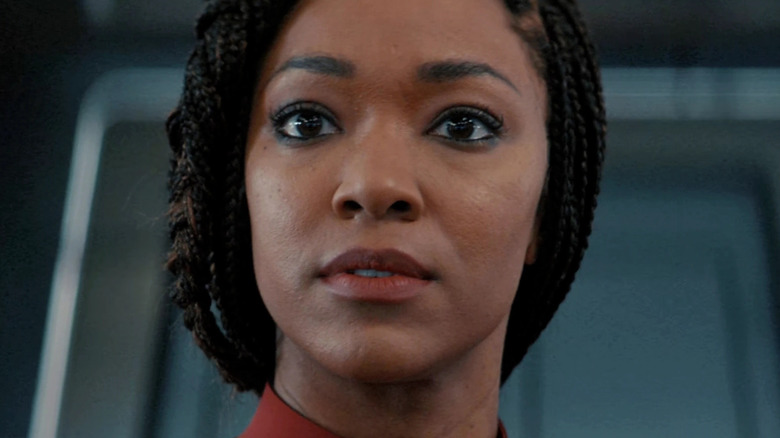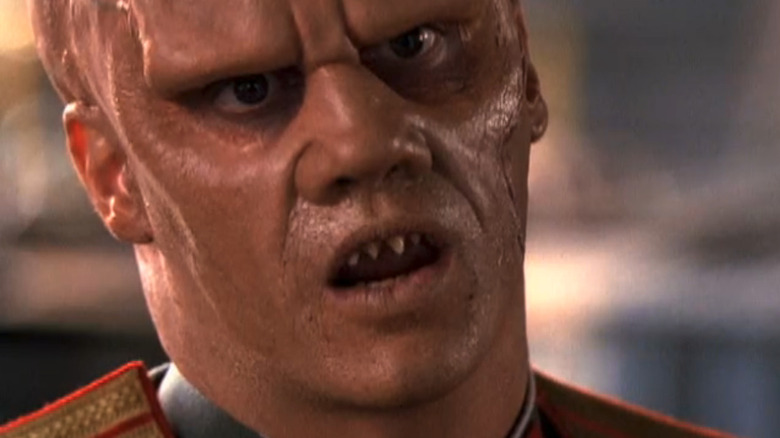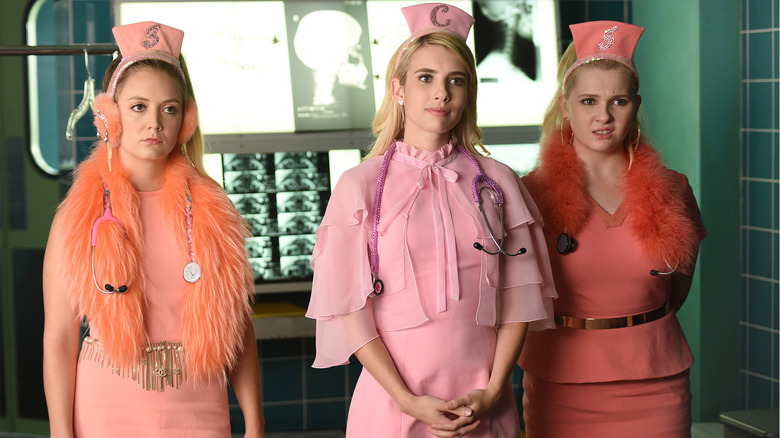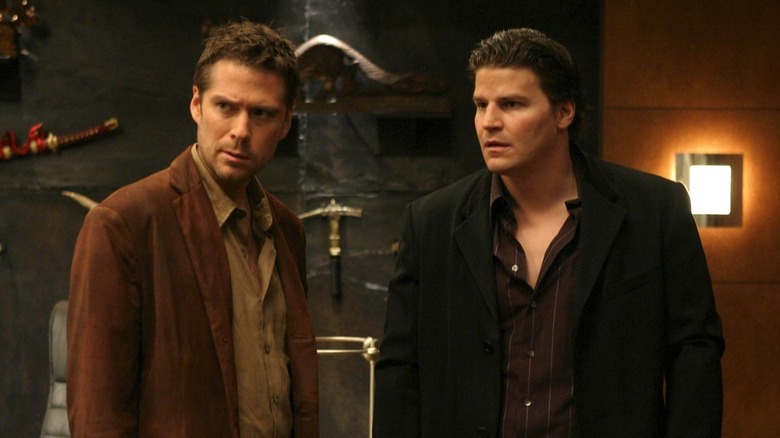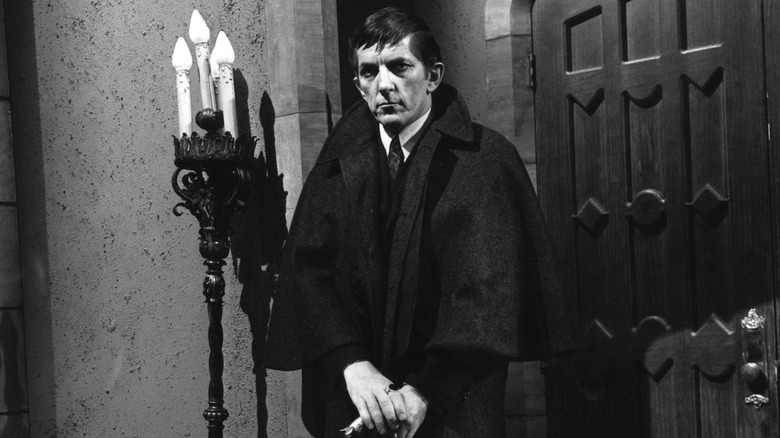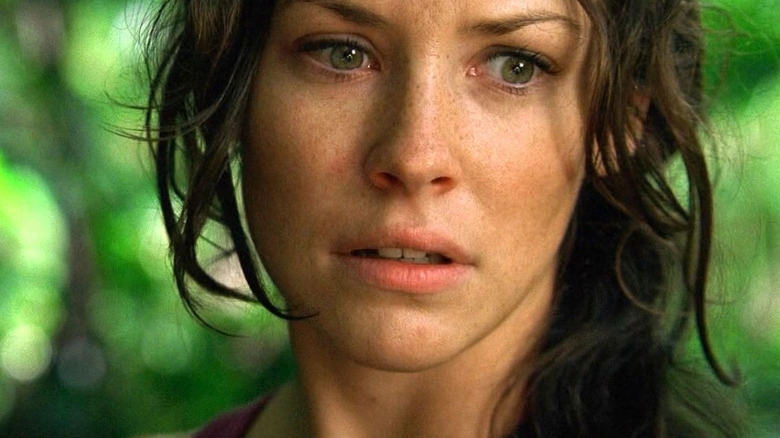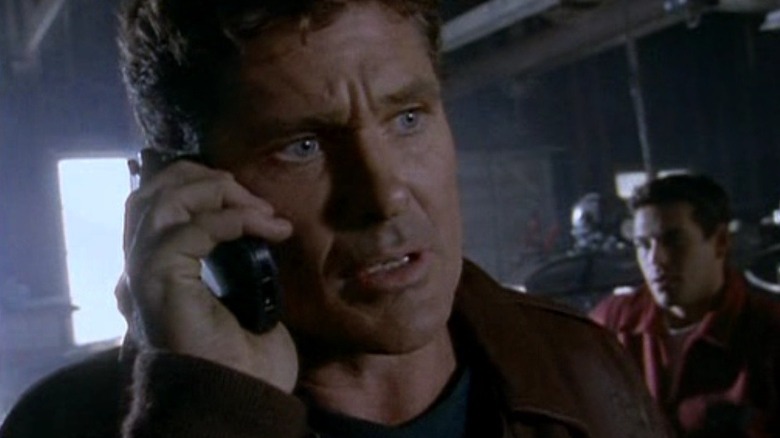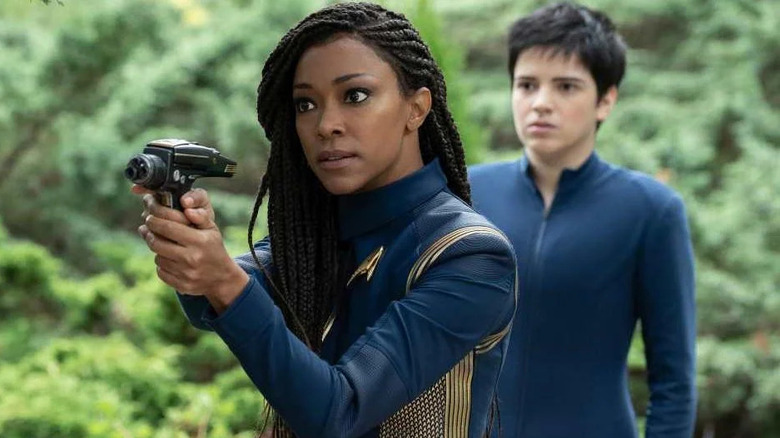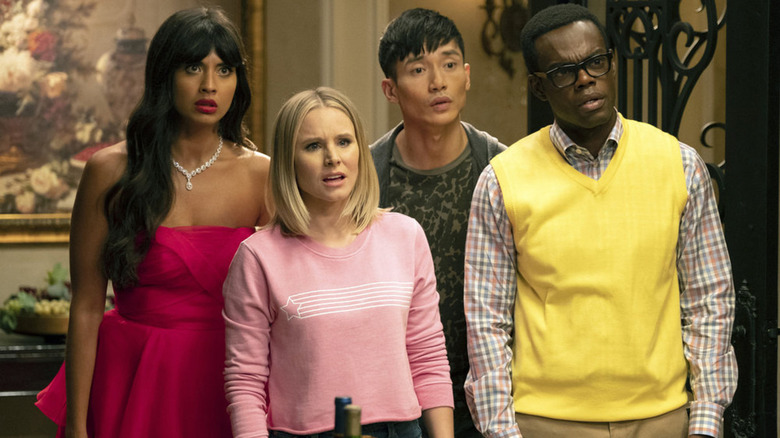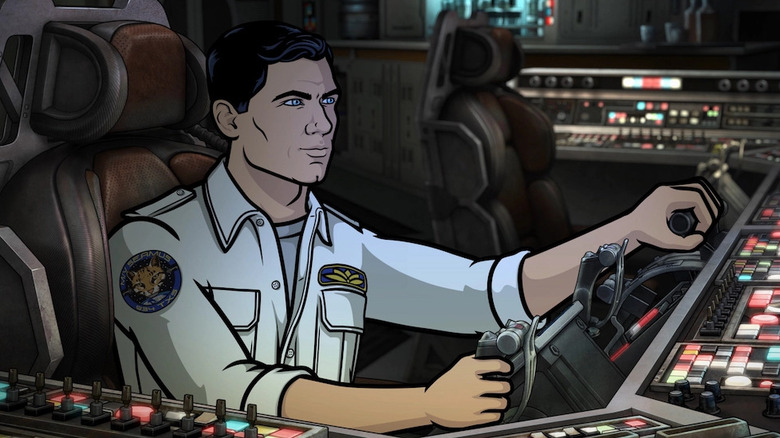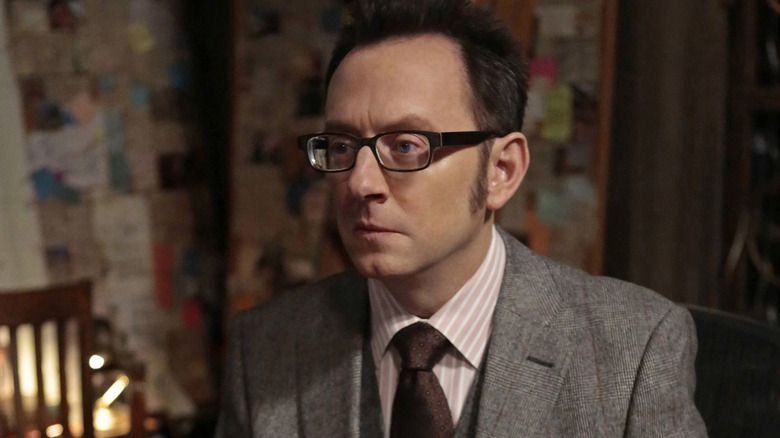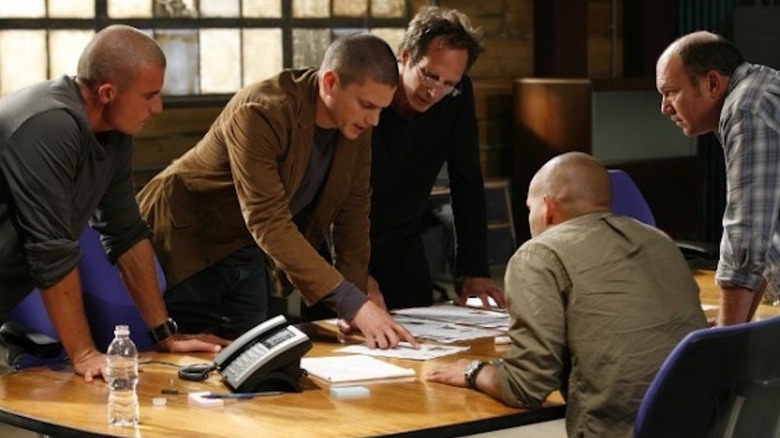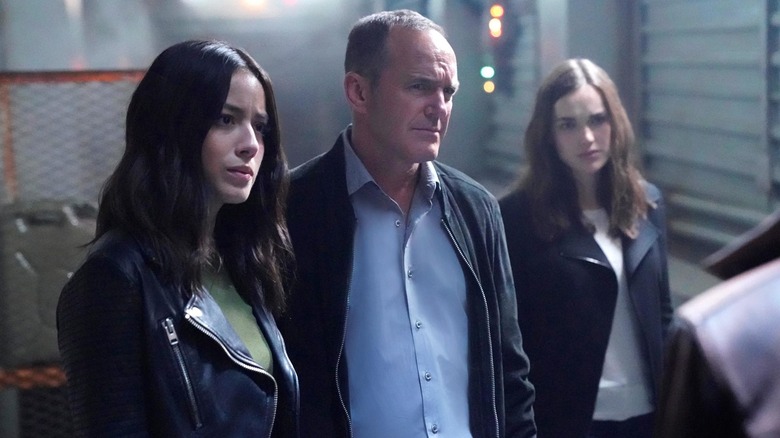TV Shows That Radically Altered Their Premise In The Middle Of Their Run
Every television series needs a solid premise, an established tone, a set of compelling characters, and a mission that sparks the ongoing adventures that viewers will tune into week after week. Typically, a show's core concept will remain largely unchanged through its run: "MASH" follows the staff of a medical hospital during the Korean War, "Breaking Bad" centers on a school teacher who becomes a drug kingpin after being diagnosed with cancer, and "The A-Team" sees a group of mercenaries fighting bad guys week after week.
Sometimes though, a show will overhaul its premise, swapping out cast members, altering its tone, and even completely changing its setting and the character's mission. This kind of drastic retooling often helps liven up a series, shake up a stale format, and bring in new viewers. When it's done well, it can earn a show several more seasons, but when it's done poorly, it can get a show canceled quickly. In the history of television, it's happened plenty of times, and to some of the most popular shows on the air that you might not expect. So scroll on as we explore just a few of the many shows that have radically altered their premise in the middle of their run.
Sliders
The sci-fi series "Sliders" has gained cult status over the years for its use of the multiverse and its thoughtful exploration of moral and social themes. It stars Jerry O'Connell as Quinn Mallory, a teenager who invents a portal device that transports him to parallel Earths. But when he jumps through with his friend, Wade (Sabrina Lloyd), scientist Maximillian Arturo (John Rhys-Davies), and used car salesman, Rembrandt (Cleavant Derricks), they get lost and must find their way back home.
Early episodes are mostly light-hearted romps that use these parallel Earths to examine real-world problems like gender inequality, the dangers of authoritarianism, and the threat of unchecked capitalism. But the show takes a sharp turn in its third season when a move to the nascent Sci-Fi Channel sees it become a darker action-adventure show. It introduces broader mythology and an ongoing story about villains who can also travel across the multiverse. Suddenly the show stops being a story about Quinn's quest to get home, but a battle to stop the Kromaggs, a race of multiverse-conquering monsters.
With unnecessarily complicated new lore about Quinn's multiverse origins in tow, the change in premise and move away from thoughtful sci-fi stories didn't help the ratings, and only served to push O'Connell out of the series (per Yahoo). Unhappy with the show's new direction, he left after Season 4, and "Sliders" was canceled a year later, proving that sometimes a change in the premise isn't always the best idea.
Scream Queens
The horror genre has often been successful at self-referential commentary, with franchises like "Scream" giving classic cliches a good-natured ribbing while still telling inventive and gruesome stories. In that same vein came the 2015 series, "Scream Queens," a comedy unafraid to confront some of the horror genre's trite tropes. Created by "American Horror Story" creator Ryan Murphy, the series cast iconic queen of horror Jamie Lee Curtis as Dean Cathy Munsch of Wallace University, who lords over the Kappa Kappa Tau sorority girls — played by the likes of Emma Roberts, Ariana Grande, Abigail Breslin, and Billy Lourd — just as a serial killer emerges on campus.
Though Season 1 of "Scream Queens" was met with good reviews, Season 2 completely flips its setting and concept out of the blue. No longer about a group of sorority girls, the series moves the entire cast to a hospital. Founded by Munsch in an effort to bring justice to the medical system, the former school dean brings all her favorite students with her to serve as staff. In what feels like an entirely different series at times, Kirstie Alley joins the cast along with John Stamos and Taylor Lautner as another serial killer comes to the fore.
A testament to the show's strong producing team, Season 2 did receive an even better response from critics, despite the radical departure. Still, it couldn't survive a competitive TV landscape and was canceled after its sophomore year concluded.
Angel
"Angel" was a spin-off of the wildly popular "Buffy the Vampire Slayer." The title character was first introduced as a love interest of Buffy's in 1997, with actor David Boreanaz getting his own series two years later. In the series, he leads a group of supernatural investigators who track down bizarre monsters, thwart the plans of paranormal villains, and try to prevent various doomsday prophecies with a stalwart team of allies. After a disappointing fourth season, however, the series was inexplicably retooled into a legal drama.
To be fair, it's still a supernatural adventure series, but Season 5 opens with Wolfram and Hart — a supernatural law firm that had been among Angel's biggest foes earlier in the series — handing over control of the firm to him and his team. Suddenly Angel is sitting behind a desk and wearing a suit, while vampire hunter Charles Gunn (J. August Richards) is magically turned into a lawyer. Now a legal procedural of sorts, Angel and his team take up new supernatural clients each week.
While turning the series upside down did deliver a better response, and is generally seen as a step up, it couldn't earn the series a longer life, and "Angel" came to an end after one year of practicing law. Ultimately though, its attempt at becoming a legal drama was generally successful, even if it was drastically different than how it all began.
Dark Shadows
"Dark Shadows" remains one of television's biggest cult hits, a vampire soap opera unlike anything audiences had ever seen. Running for six seasons and more than 1,200 episodes, it centers mostly on the life of vampire Barnabas Collins (Jonathan Frid) who longs for the love of his one-time bride-to-be, Josette. But when the show first premiered in 1966, Collins wasn't even a member of its cast, and the show was a fairly routine gothic soap opera, with the odd ghost tale or spooky story, beginning with the story of a strange girl with a mysterious past.
Less than a year into its run, "Dark Shadows" was struggling and on the verge of being canceled. Desperate to reinvigorate the series, the series introduced Collins and the series was truly born. "Barnabas was brought in because I wanted to see exactly how much I could get away with, never intending that he would be anything more than a vampire that I kill," series creator Dan Curtis recalled (via Woman's World).
Collins proved to be an instant favorite, and the show was off and running, throwing itself neck deep into horror stories involving werewolves, witches, and even science fiction concepts like time travel and alternate realities. Before long, "Dark Shadows" was such a mammoth hit that it spawned two feature films. And like a vampire, the series wouldn't die: in 1991 it received a TV remake starring Ben Cross as Collins, and a feature film in 2012 with Johnny Depp.
Lost
Not every series changes its premise because of low ratings or an attempt to bring new life to a story. In some cases, the radical shift in the premise is planned from the start, such as with J.J. Abrams' "Lost." The show was originally intended by the network to be nothing more than a series about survivors of a plane crash stranded on a deserted island (per Empire). With Abrams at the helm, "Lost" opens with just that premise, as a diverse cast of different characters begins clashing with each other as they hope to find rescue.
But while the series begins as a gritty survival story with elements of a wilderness crime drama — punctuated with serialized flashbacks to the lives of the survivors before the crash — "Lost" abandons that premise over time. Before long the series is no longer a down-to-earth drama, veering wildly into science fiction, full of immortal otherworldly beings, time travel, and alternate realities. Towards the end of its run, it even dives headfirst into religious and spiritual themes with an exploration of the afterlife and the origins of the forces of good and evil, going places nobody expected when it first began as a simple survivor story.
Though viewers were initially drawn in and gripped by the series' harrowing tale of hopelessness, it changed so gradually that you might not have even realized you were watching one of the best science fiction shows of all time.
Baywatch Nights
In the early 1990s, the beach-based adventure, "Baywatch," proved to be one of the biggest hits in syndication, and producers whipped up a spin-off in 1995, titled "Baywatch Nights." It took the rare route of also featuring the star of its parent series, David Hasselhoff. Here we discover that his character, lifeguard Mitch Buchanan, works for a private detective agency by night alongside police officer Garner Ellerbee (Gregory Alan Williams) and detective Ryan McBride (future "Law & Order" star Angie Harmon). A routine police procedural, the first year sees them dealing with stalkers, bank robbers, and serial killers.
Unfortunately, on the back of poor ratings, the second season becomes a totally different series. Likely inspired by the success of "The X-Files," Hasselhoff and Harmon stop tackling street crime and begin dealing with the supernatural. This includes episodes where they investigate a UFO, hunt down a vampire, travel 20 years into the future, disappear into a parallel world, and deal with strange mythological sea creatures. There's even an episode where Mitch is inexplicably possessed by a hellish demon from the netherworld.
With a totally new intro that emphasizes the altered paranormal premise, "Baywatch Nights" might as well have been retitled "The Baywatch Files," too. As you might expect, the radical change didn't help improve its ratings and the series was canned after its second season.
Star Trek: Discovery
When "Star Trek: Discovery" premiered in 2017, it had been well over a decade since the franchise had a series on the air. Produced by Alex Kurtzman, the series also had a decidedly big budget, a feature film look and feel with a darker story and a more mature tone which rubbed many fans the wrong way. A prequel to the original "Star Trek" series set some 10 years before Captain Kirk, "Discovery" also drew the ire of those who saw the series as stepping all over established continuity.
Despite a promising start, however, behind-the-scenes problems and audience backlash left producers and writers struggling to find the show's voice. As a result, the second season concludes with a massive retooling of the show's premise, throwing the starship Discovery a thousand years into the future. According to Kurtzman, this was done in an effort to escape issues of continuity that had plagued them the first two years, and reset the show with a new tone (per THR).
In addition to a new time period, the status quo sees a seismic shift, as in the far future the United Federation of Planets is in shambles and galactic powers are in chaos. Though it afforded the creators a new, fresh canvas for them to craft stories, it didn't seem to make disgruntled fans much happier. Still, with fourth and fifth-season renewals, it's clear the changes in the show's premise have been good for its longevity.
The Good Place
"The Good Place" is a 2016 black comedy that stars Kristen Bell as Eleanor Shellstrop, a woman who dies and finds herself in heaven. But Eleanor realizes that she is there by mistake, and if anyone — including The Good Place's administrator Michael (Ted Danson) — learns who she really is, she'll be doomed to eternity in The Bad Place. The first season revolves around Eleanor's increasingly comical attempts to hide her true identity, as more and more goes wrong for her.
Season 1 concludes with Eleanor learning that (spoiler warning) she is already in The Bad Place, and Season 2 overturns the premise. In its second year, the focus shifts to Michael, who is revealed to be under pressure from his other-worldly superiors to design a perfect torture world, and he soon finds himself reluctantly allied with Eleanor and her friends in an attempt to escape his own hellish punishment. But that's not the end of the show's changes, as Season 3 does it again, resetting the story with a bold new twist as Eleanor must relive her life on Earth in a new timeline.
Season 4 flips the script once more, as Eleanor becomes the new afterlife administrator and puts her own friends through a series of tests in an effort to reshape all of existence. A master stroke of storytelling, "The Good Place" swaps its premise every season, and in doing so it became one of the most critically acclaimed comedies of the decade.
Archer
The animated comedy "Archer" began airing in 2009, and was envisioned as a send-up of James Bond and other Cold War-era spy movies and TV shows like "Mission: Impossible," "Danger Man," and "The Saint." The show introduces audiences to a fictional intelligence agency known as ISIS (the International Secret Intelligence Service) and focuses on its top agent Sterling Archer (H. Jon Benjamin), fellow operative Lana Kane (Aisha Tyler), and various other support staff as they go on missions around the world.
Airing for 13 seasons and counting, it became clear some years into its run that the writers were looking for new, fresh material because in Season 5 the show takes a hard right turn away from spy stories. No longer a spoof of Bond and his ilk the season — dubbed "Archer Vice" — becomes an homage to the iconic '80s cop drama, "Miami Vice," but from the other side as Archer and his crew become drug smugglers. After returning to espionage a year later, "Archer" upends its premise again in Season 7, becoming a pastiche of "Magnum P.I.," and once more in year eight which goes crime noir, retitled "Archer: Dreamland."
Year nine pays respect to "Indiana Jones" with a story titled "Danger Island," while Season 10 goes sci-fi for "Archer: 1999." Still going strong in 2023, "Archer" has kept itself fresh thanks to this constant reinvention, repeatedly altering its premise any time it risks getting stale, and so far it's paid off.
Person of Interest
Following "Lost," Michael Emerson — who had played series villain Benjamin Linus — joined the high-concept procedural, "Person of Interest." When it began its run in 2011, it was a fairly standard "case-of-the-week" series. In broad terms, each episode sees Emerson's character, Harold Finch, providing details of a potential crime to free agent former soldier John Reese (Jim Caviezel), who must track down a criminal and stop them before they strike.
But like "Lost" before it, "Person of Interest" slowly evolves into something else entirely, and eventually becomes a must-see sci-fi series about the stark realities of government surveillance and the dangers of artificial intelligence. Because at the heart of the series is a computer program that gives Finch the data he needs to help Reese catch the crooks. After the introduction of a hacker named Root (Amy Acker), the series turns the computer program into a sentient character all its own, which lays the groundwork for a rival A.I. villain with more sinister motives.
As the two computer programs begin to interact, they use people as pawns in their virtual battle, putting real lives on the line. Suddenly, the ethics that guided Finch and Reese seem precariously blurred, and the drama moves almost entirely away from its original premise. Unlike "Lost" however, the switch in tone doesn't seem to have been pre-planned, but likely came about organically as the dramatic potential of the A.I. that was already a part of the series slowly became apparent.
Prison Break
Starring Dominic Purcell and Wentworth Miller, the Fox action drama "Prison Break" landed in 2005. The series sees a man named Lincoln Burrows (Purcell) imprisoned for the apparent murder of the Vice President of the United States, and his brother Michael (Miller) hatching a plot to get incarcerated himself and help his brother break out to prove his innocence. The problem with this premise, of course, is that once the brothers get out, the series has outlived its title.
Rather than end the series though, "Prison Break" takes the brothers back to the slammer a second time, and they break out once more. But with the show's popularity increasing, a third repeat must have seemed like a bit of a stretch because, for the fourth year, the show stops pretending it has to be about a prison break, and it becomes something entirely different. That season, "Prison Break" is something of a conspiracy thriller and spy series as the two brothers work with their closest allies to take down a clandestine government organization in a story that feels like a "Fast and the Furious" sequel.
Unfortunately, the consensus on Season 4 among critics (and most fans) was that the new direction was a bit too much. Though it didn't get a fifth season, the show did get a revival nearly a decade later, which wisely brought the story back behind bars.
Agents of S.H.I.E.L.D.
When "Agents of S.H.I.E.L.D." was first announced, it was assumed that it would be a first-rate spy series with well-planned storylines that would crisscross with the films in the Marvel Cinematic Universe. But viewers slowly began to realize that the series and the films they were ostensibly an offshoot of weren't quite as integrated as they'd hoped. This was reinforced when midway through the first season, "Captain America: Winter Soldier" saw S.H.I.E.L.D. itself dismantled, forcing audiences to wonder why the show had even been launched.
Suddenly producers and writers of "Agents of S.H.I.E.L.D." had to think their way around the destruction of the agency the show was supposed to be about. This meant completely overhauling the show's premise, as the surviving agents led by Phil Coulson find themselves on the run. Eventually, they take on a new mission to hunt down surviving members of HYDRA — the terrorist organization that had infiltrated S.H.I.E.L.D. — even revealing that one of the main cast had actually been a secret villain.
No longer a procedural spy series, the show broadens its scope, introducing a slew of comic book superheroes, and moving to season-long story arcs. But this isn't the last time it reinvents itself, as each new year essentially retools with new, often radically different stories. Thanks to thinking on their feet, the show was able to adapt to unexpected changes in the MCU and wound up becoming a fan favorite lasting seven seasons.
